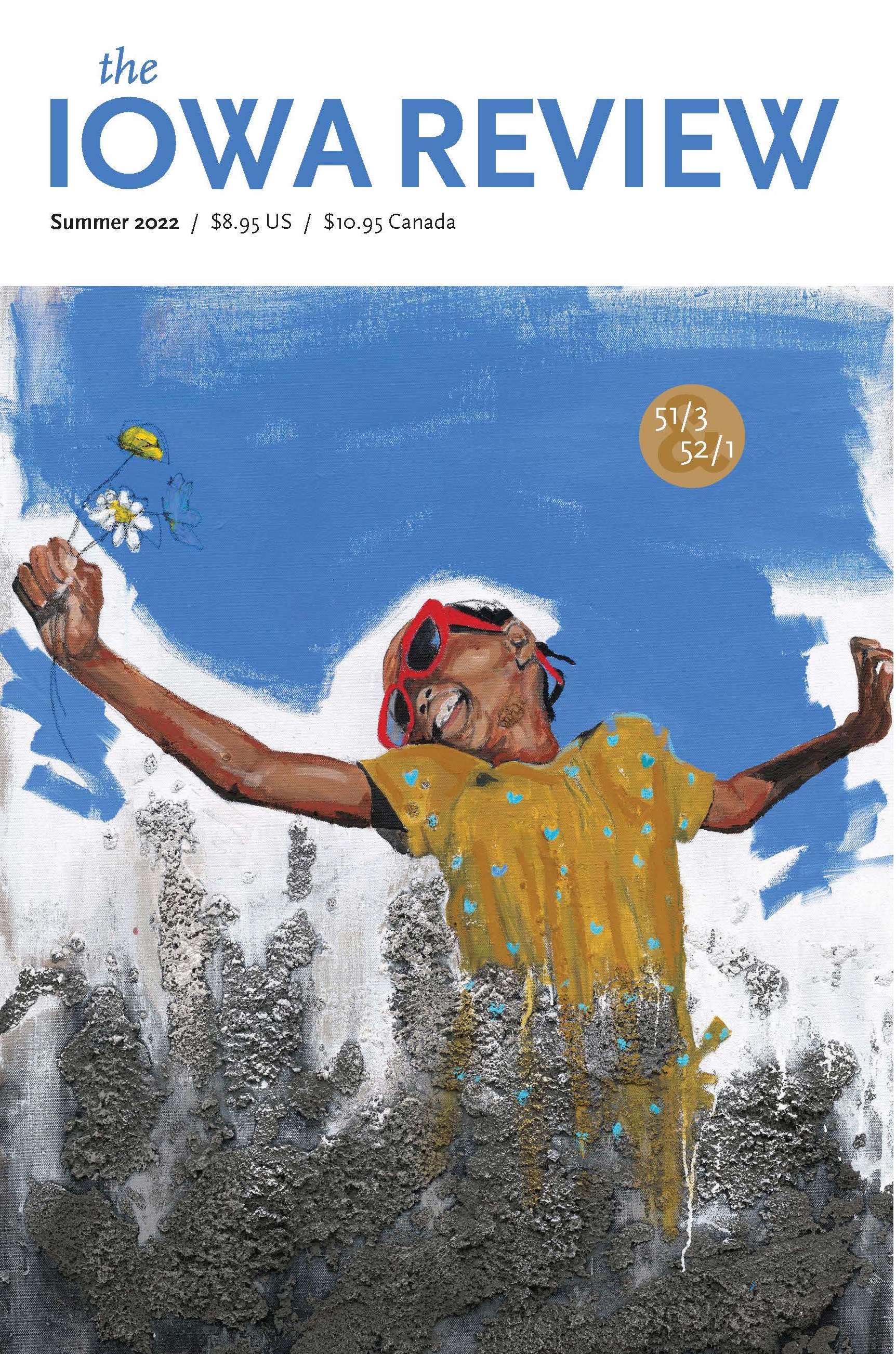
One of the rooms is haunted the Resident Poet tells me, handing
the key. From my studio, the Gihon is green and barely a creek. Yet
this town with one bar and no coffee shop summons up
my birth village: the two-storied stone house, the water mill,
the suspension bridge, the Mikli-Phoom that spat out Jyojyo
still breathing … (I never went back after we moved to Kathmandu:
what was I so afraid of finding, of not finding?) And why am I,
who have always been afraid of the dark, disappointed
when she says Yours is not that room. While I was asleep an ocean away,
the Himalayas shook, everyone fled, the stone house collapsed,
then they remembered—the baby asleep in the cot
in the prayer room. My niece who was yet to be named. I wake up
to animal sounds coming from under my bed a week later at lunch,
the fiction writer from Alabama claims her room is the one.
Maybe a child was buried there says the multimedia artist. I say
nothing. The blackbird-obsessed painter says I bet someone upstairs
is having sex. We laugh. A surrealist, the writer doesn’t request
a room-change. I think they’re trying to tell me something … If we haunted
a house without us ever knowing it. If the house mistook it
for a type of love. Beside Red Mill, the Buddhist prayer flags
whip in the rain: Wind Horse carrying the three jewels of the Buddha,
dharma, and sangha. Tiger, dragon, garuda, and snowlion guard
the four corners. The wind touches the mantra—and the sky
is purified. What do they say, these mantras? My father tongue
that I did not inherit. Apa tried, but before I could say water
in Lama, we both realized we’d rather go drown ourselves
in the Mikli-Phoom. The only Lama word I still remember: Sertok.
Golden steeple. The name he gave me. Always broke and acrophobic:
the irony is neither of us got irony. At the primary, the Hindu Sirs
who spoke only Devanagari heard Sher: lion. For once
my classmates were creative: Sher-Tok. Lion, Bite! Somewhere
above the Atlantic, I settled on Samyak. Buddha’s Middle Way.
In honor of my devout Buddhist parents, I convinced myself,
looking at the whitest clouds. Messenger pigeons weave
and unweave a prayer shawl from the Red Mill roof to the Gihon
and back. Beneath the buckthorns on the bank, Houdini,
the Resident Cat, lurks … On the bridge, the Asian American artist
from New York calls me Sam again. I don’t tell her
what I said to the freshman who did the same. Instead, I think
Gilded father tongue. I listen to the river reverie—the house
in Kathmandu waking to Apa’s foreign chant and later riding
the currents of his incantation coming through the brick wall,
I’d begin my own mantra of malleus, incus, stapes … Do things become
ghosts once we stop calling them by their names? And what of
a disappearing tongue, the one we never learnt. Every word
is an apparition. In my studio, I sit cross-legged on the cushion
by the window. The wind fills the sky with pine needles, dead
catalpa leaves … When Houdini makes a pigeon disappear inside
his mouth and spits out the feathers, how much sky does he swallow?
When his prana wouldn’t release him days after he had stopped
speaking and I finally wanted to embrace him, Apa, go in peace,
why did I think, Do I have his permission? He held on to his breath
for nine nights to say water? To whisper a name I had
long sloughed off? When he was finally freed of maya, I was asleep
in our second house to ward off the burglars. But what house
isn’t already broken into. Loss is a horse I carry on my back
strapped with burning prayer flags. I write these lines—and my niece
is still nameless. Outside the Meditation House, a robin thrashes
the window again, its claws scratching an illegible note
on the glass … If I carried the subterranean animals inside
my mouth against their will. If I haunted them every time I spoke.
Vermont Studio Center, July 2019
